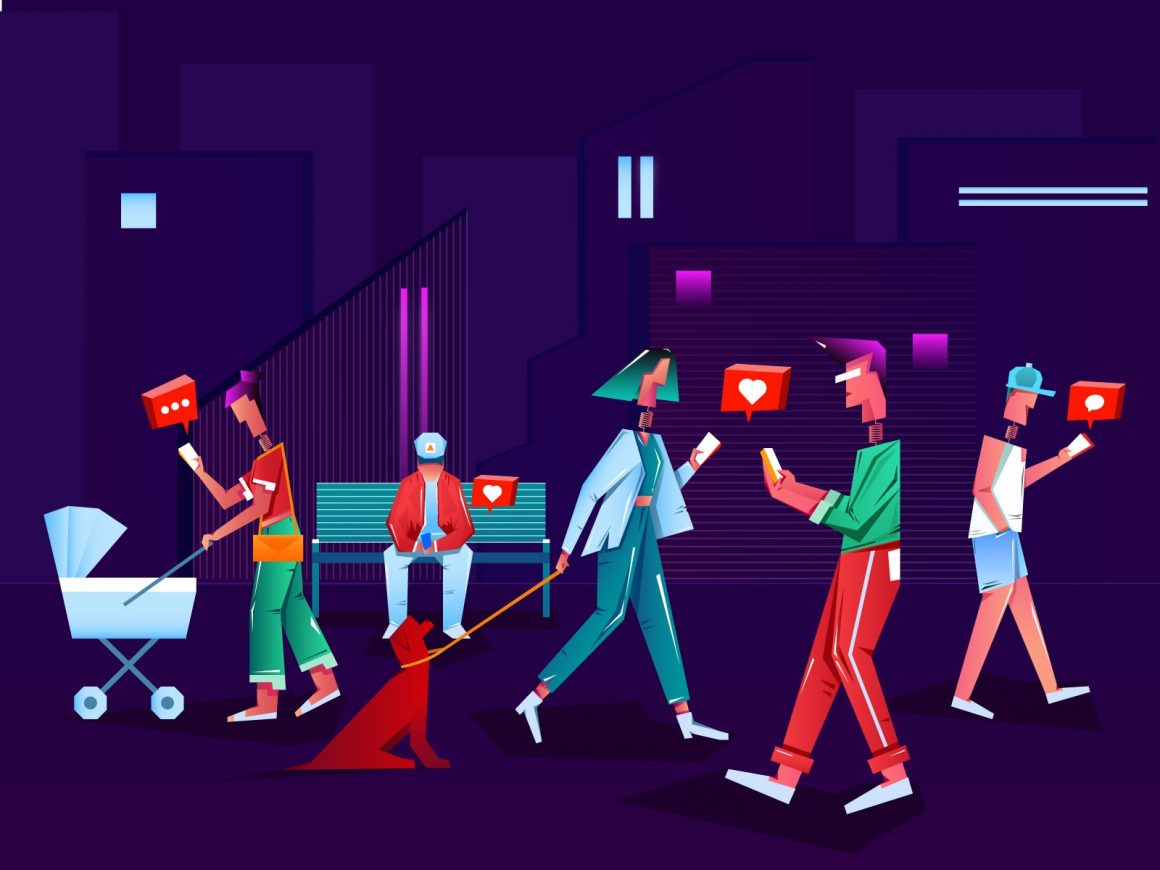” Gen Z’s are obsessed with social media.”
“Gen Z’s care about just two things: themselves and their phones.”
“Gen Z’s really can’t live without their smartphones.”
” Gen Z’s live online.”
That should be enough to make a mark.
Right now, you’re probably wondering why I have written all these statements, and are contemplating the nature of their context. These are common and popular utterances and opinions directed at Generation Z: my generation. We have earned the title or, more pointedly, we have been branded “the online generation”.
Some may call these remarks far-fetched, insulting, or overly stereotypical. They’re probably right in their evaluation. Unfortunately, even as stereotypical as they may sound, these statements are, to some extent, true.
To back this up, let me paint a picture: Gen Z wakes up in the morning, an hour past their alarm, and automatically reaches for their phone in an innate, almost unconscious movement. An Instagram notification pops up on its screen, and the much-needed sleep of five seconds ago is completely forgotten. Their sense, focus, and cognition are now all in one place: online.
Hold that image in your head. Do you now have an idea of where I am heading?
HAS ONLINE NOW BECOME A LIFE MONITOR?
“Gen Z’s live online“.
I’ve heard this statement more times than I can keep count of and to put it bluntly, it holds more truth than I would like to admit.
A good number of Gen Z’s have the basis of their lives and values embedded online. We have our relevance of existence and the worth and value of our lives decided by the response to a tweet or a picture posted.
Sanity, depression, sincerity, mood, vitality, love, hatred, and grudges are now judged and evaluated by whether or not a person likes a post or how long it takes a person to comment on a tweet. The nature of the comment, in turn, depicts the nature of the person’s life as of then.
Reposts and reviews have now become psychological factors. If a person’s post is delayed past his or her regular posting schedule, it becomes a cause for worry. They have friends calling to find out if everything’s alright. What happened to taking a walk down to your friend’s home on a regular day to check up on them?
Being online has, in the recent past, held the basis of the Gen Z lifestyle. Now it is more: it is a life factor. If you’re not online, you’re out of line.

HAS THE GEN-Z LIFESTYLE BEEN AFFECTED BY VIRTUAL LIVING?
Yes, of course!
The online factor, or virtual living, has greatly influenced the daily living of Gen Z today. So much time and energy is spent on virtual living that actual living is neglected. The frivolities and mundanities of social media platforms have usurped the basic humane values of daily living.
Netflix is now categorised as a recreational activity. TikToking is now considered an interpersonal relationship skill. Tweeting is now a badge of diplomacy and relevance.
We’ve sidelined and numbed a core value that is the basis of real living and lifestyle: physical contact and interaction for empathy, care, attention, growth, communication, and teamwork. Meanwhile, this should be the pillar of our lifestyle.
What happened to having a conversation that is absent of toxic gossip and trending topics? What happened to living your life without seeking to become the next viral thing?
Go out. Take a walk. Hang out with your friends. Spend quality time with family.
Go out and live a real life with real people!













